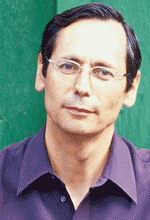The results were surprisingly bad. <preconditions of revolution> is a little better but still not great. Here is the meat you were looking for plus some. The bottom line on revolution is that it results from scarcity compounded by corruption. The USA is in a pre-revolutionary situation today, with all the preconditions present, lacking just a precipitant.
Revolutions occur in the following domain areas: political-legal/military, socio-economic, ideo-cultural, techo-demographic, and natural-geographic. Preconditions are different from precipitants. Preconditons can cross-pollinate but a precipitant is the spark. Take a careful look at the first graphic–generally a concentration of wealth, an inattentive elite, a breakdown of ideo-cultural confidence, and a demographic crisis (major unemployment plus an epidemic) are four that come to mind as especially troubling.
Graphic: Pre-Conditions of Revolution
1992 MCU Thinking About Revolution
Review: Revolutions and Revolutionary Movements
Search: rm maciver the web of government summary
Search: smart nation intelligence reform electoral reform national security reform






